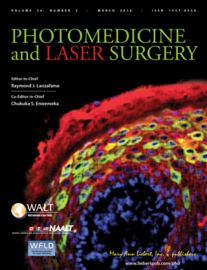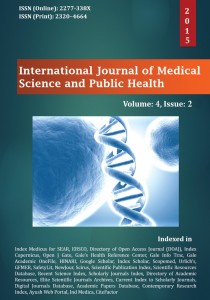A father and son are fighting over whether a laser therapy they describe as co-authors of a 2015 paper could be harmful to patients, prompting the journal to retract the article.
The small study suggested that the therapy could safely treat patients with glaucoma. But Tomislav Ivandic — the father — alleges that errors in how the study was reported could lead to harmful doses of laser light for patients receiving the therapy. His son and co-author, Boris Ivandic, maintains that the article is accurate.
To err on the side of patient safety, Photomedicine and Laser Surgery retracted “Effects of Photobiomodulation Therapy on Patients with Primary Open Angle Glaucoma: A Pilot Study.”
The retraction note explains the dispute:
Continue reading Family squabble over safety of eye therapy forces journal to pull paper









